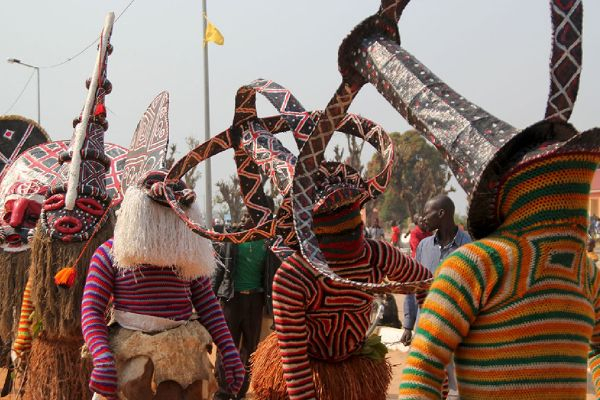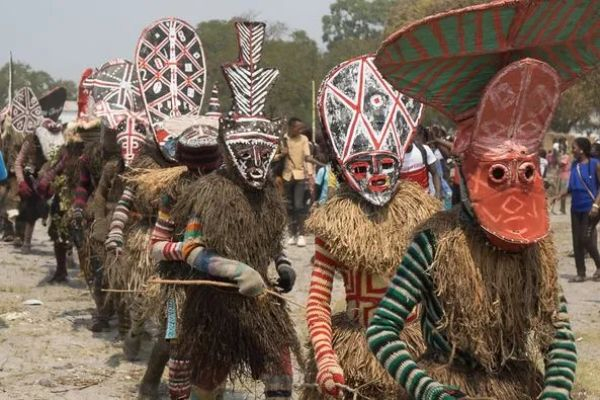The Makishi mask festival
After young men have completed their initiation, the Makishi mask festival is celebrated. The young males are then given masks that they must wear throughout the procedure. Each mask has its own symbolism, but the Makishi, which depicts an ancestor who returns to the living world to help the boys, is the most important.
Masks are employed in African festivities all throughout the continent. Traditional masks represent spirits, and many think that the mask contains the spirit's power. The Chokwe people of Angola, the Democratic Republic of Congo, and Zambia created this mask, which depicts an ancestor ghost known as Cikunza. In festivals and initiation rites, this spirit plays a significant part.
Because the shape of an antelope's horn is similar to that of the mask, Cikunza is connected with hunting. It can be worn by an adult. It's made of woven plastic and is painted black with red and white stripes. A fringe of fibers at the bottom hides the wearer's neck. When the Cikunza dances, the tassel at the top of the mask spins around. In a threatening manner, the mouth is open.
Organized by: Communities in North-Western and Western Provinces of Zambia









